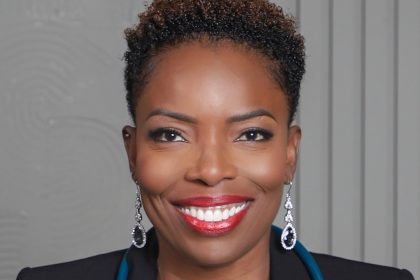In an era where artificial intelligence offers medical diagnoses and patients increasingly turn to Google for health advice, Dr. Rachel Delsarte envisions a transformative shift in primary care delivery. As a primary care physician practicing in Atlanta, she observes a healthcare system reaching a critical juncture, where traditional models strain under the weight of modern demands.
Dispelling primary care myths
“People may think primary care is like an easy specialty, or it’s people that go into it are not that ambitious,” Delsarte notes, addressing a common misconception in the medical community. She argues that the reality is quite different, requiring physicians to maintain comprehensive knowledge across multiple specialties while serving as patients’ first point of contact with the healthcare system.
The breadth of knowledge required in primary care often surprises both patients and medical students. “You are expected to know basic information about all these different organ systems in our body and how to deal with them in acute settings,” she explains. This wide-ranging expertise forms the foundation for effective patient care and appropriate specialist referrals.
The burnout epidemic
The current healthcare landscape presents mounting challenges for medical professionals. “Doctors are burnt out, nurses are burnt out, all people in all facets of the healthcare system are burnt out,” Delsarte observes. This systemic exhaustion occurs while patient outcomes fail to improve significantly, creating a frustrating paradox where increased effort doesn’t necessarily yield better results.
A new model emerges
Delsarte sees promise in the direct primary care model, an alternative approach gaining traction in the medical community. This system eliminates the traditional insurance middleman, establishing a direct financial relationship between physician and patient. “The care on the other side is 10 times much better,” she argues, pointing to the enhanced doctor-patient relationship this model facilitates.
While acknowledging that direct primary care might be more expensive for some patients initially, Delsarte believes the quality of care justifies the cost. “The relationship with the doctor is direct, and there’s no middleman that’s saying, ‘Oh, you have to pay this extraneous copay, or you have to do this,'” she explains, highlighting the streamlined nature of the approach.
Building patient trust
In an age where medical mistrust remains a significant barrier to healthcare access, Delsarte emphasizes the importance of building strong patient relationships. Her approach centers on treating each patient with the same respect and attention she would give a family member. This philosophy extends to simple but crucial practices, such as proper name pronunciation and including family members appropriately in medical discussions.
“People have a certain level of respect when they go to the doctor, especially older generations. You’ll see them coming to the doctor dressed in their Sunday’s best,” she observes. This respect, she argues, should be reciprocated through thoughtful, patient-centered care.
Technology and healthcare evolution
As healthcare continues to evolve with technological advances, Delsarte sees both challenges and opportunities. The rise of self-diagnosis through internet searches and AI-powered health tools creates new dynamics in the doctor-patient relationship. However, she maintains that these developments should complement rather than replace the human element of healthcare delivery.
The path forward
Looking to the future, Delsarte predicts significant changes in healthcare delivery. “Something is going to have to give,” she states, pointing to the unsustainable nature of current healthcare practices. The solution, she suggests, lies in models that prioritize the doctor-patient relationship while streamlining the administrative aspects of healthcare delivery.
Her vision for primary care’s future emphasizes accessibility without compromising quality. The direct primary care model she advocates for could provide a framework for addressing current healthcare system challenges while maintaining the essential human connection at the heart of medical practice.
Through her work and advocacy, Delsarte demonstrates that effective primary care requires more than medical knowledge, it demands a commitment to building genuine patient relationships and adapting to evolving healthcare needs. As the medical profession grapples with burnout and systemic challenges, her insights offer a potential roadmap for sustainable, patient-centered care delivery.













